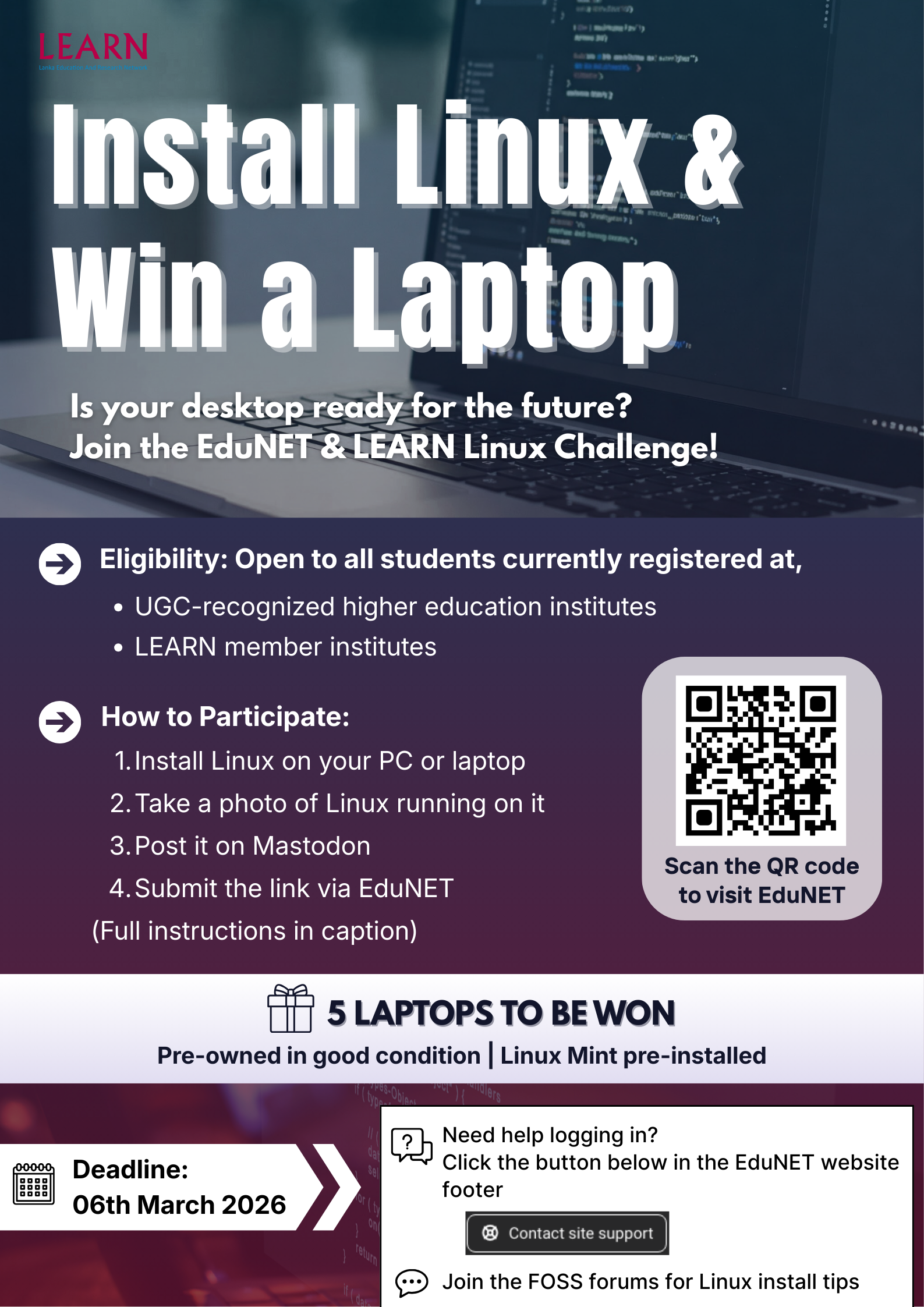🐧 WIN A LAPTOP: Join the Linux Desktop Challenge! 💻
Ready to embrace the future of the desktop? EduNET, in collaboration with LEARN, is excited to announce a special competition for the student community! Make the switch to Linux today and you could walk away with a Linux laptop.
🎁 WHAT CAN YOU WIN?
We are raffling away 5 Laptops! Each one is pre-owned but in good condition and comes with Linux Mint pre-installed and ready to use.
🚀 HOW TO PARTICIPATE:
- Install Linux on your PC or Laptop.
- Capture a photo of your new Linux setup running on your table
- Post the photo on any public Mastodon server.
- Submit your application:
- Visit: https://edunet.learn.ac.lk
- If you have an EduID account, click "LEARN SSO" and log in; if you don’t, you can create an EduID account at https://eduid.lk
- Enter the FOSS Group space: https://edunet.learn.ac.lk/course/view.php?id=1447
- Go to the Linux Desktop Competition forum - https://edunet.learn.ac.lk/mod/forum/view.php?id=2146, start a new discussion, and paste the link to your Mastodon post there.
🎓 ELIGIBILITY
The competition is open to students currently registered at any higher education institution under the UGC or LEARN member institutes, who have not previously received a laptop from EduNET.
Note for Winners: To promote the use of open-source technology, these devices are provided with the commitment that only Linux will be installed and used on them.
🛠️ NEED HELP?
Technical Support: Ask questions about installing Linux or Free and Open Source Software (FOSS) in the FOSS Group space forums on the EduNET site.
Login Issues: If you have trouble logging in, use the "Contact site support" option in the footer of the EduNET.LK@LEARN website: https://edunet.learn.ac.lk
📅 DEADLINE:
Submit your entry by 06th March 2026 (midnight) LKT.
Mastodon#LinuxChallenge | Fostodon#LinuxChallenge | LEARN'S Post @ Facebook | LEARN's LinkedIn article | LEARN.LK on TikTok

